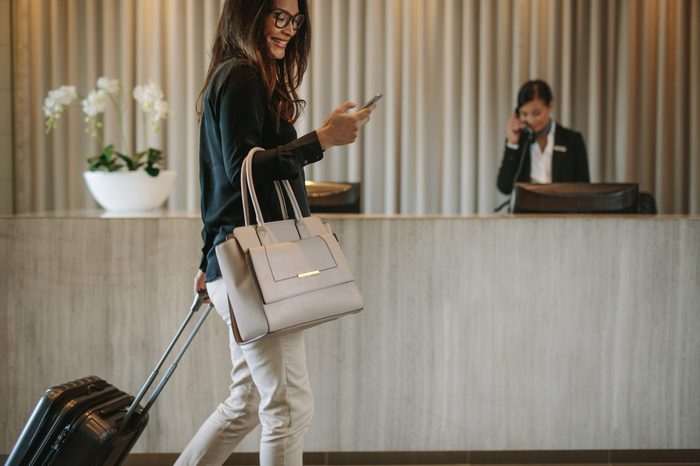
The wave of the future
Hotels are constantly trying to improve the guest experience. In addition to featuring amazing perks that will make you want to book a room ASAP, some hotels are now using smart technology integration. For example, you might be able to use voice controls to activate blackout curtains or request room service without those miscommunicated orders (say, when you want extra ketchup as opposed to no ketchup). While this smart tech can be pretty amazing, it also comes with some privacy concerns. From hackers in the next room to data leaks and more, here’s what you need to know about protecting yourself in smart hotels.
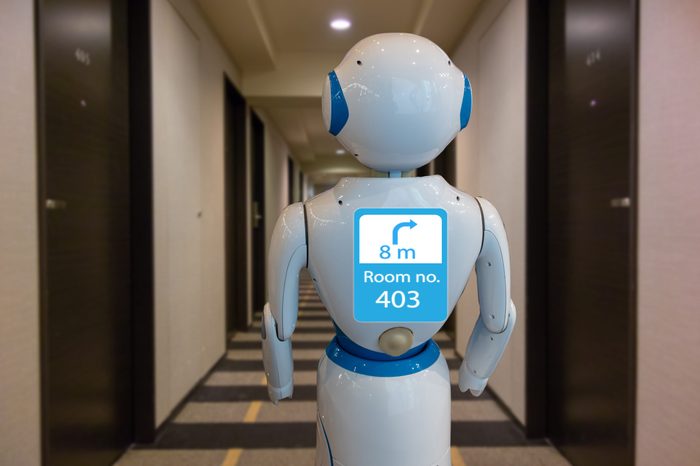
Smart technology makes travel more convenient
Smart technology is a game-changer when it comes to logistics. Robots can replace agents for check-in, which is a breath of fresh air compared to those painfully long lines. They can also answer a question and even deliver those late-night chicken fingers, according to security expert Gabe Turner of Security Baron. If you’re still checking in the old-fashioned way, here are 13 things never to ask hotel staff.
Hotels are also using some of the same smart technology guests may already use at home. “Many hotels are putting smart speakers, thermostats, and light bulbs in rooms so guests can use voice commands to ask for their schedules, control music, temperature, and access a ton of other information hands-free,” says Turner.
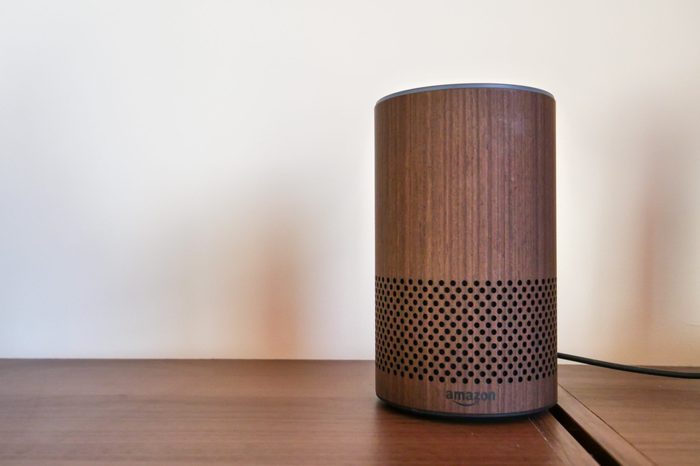
Amazon’s Alexa makes rooms smarter
According to The Verge, Amazon’s custom version of Alexa for the hospitality industry is thriving. Guests can use an Echo to do things like request an extra bottle of shampoo, turn up the heat, or close the blinds. Alexa can also answer specific questions such as: “What time is checkout?” or “When does the pool close?” Several hotel chains already implement this technology, including Westin Hotels & Resorts, St. Regis Hotels & Resorts, Aloft Hotels, the Wynn Las Vegas, and Marriott hotels. Do you like using Alexa? Here are 11 things you didn’t know Alexa could do.
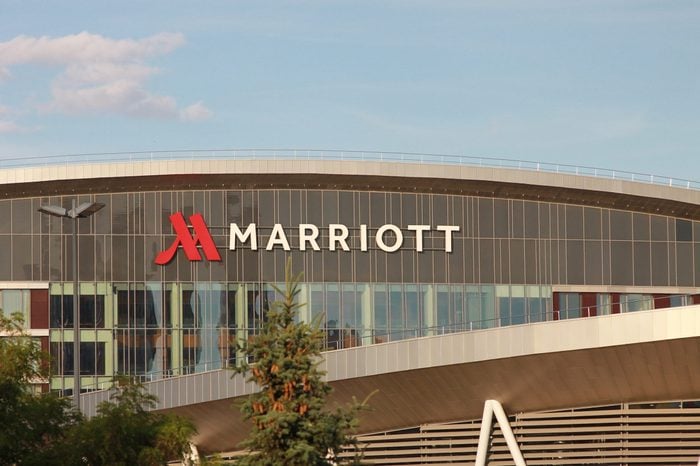
Digital assistants are just the beginning for Marriott
Marriott takes smart rooms to the next level with the smart guest room lab at their headquarters in Bethesda, Maryland. Developers use this prototype room to experiment with voice command technology among other features. And in 2019, the hotel giant launched the Marriott Bonvoy app. It allows guests not only to book rooms but also to check in, enable the mobile key, make service requests, and communicate with representatives as well as chatbots.
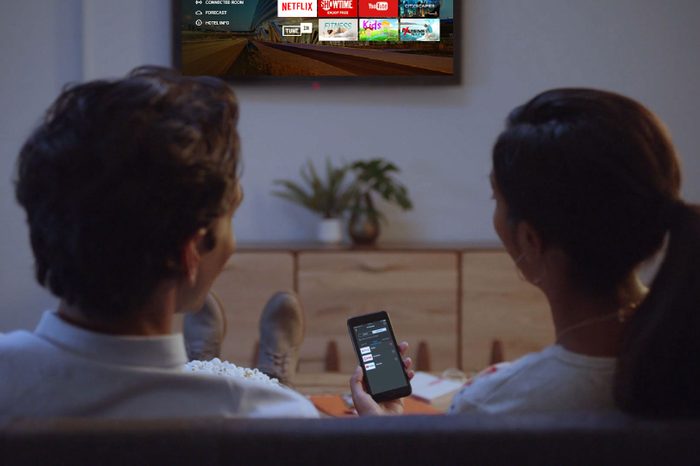
Hilton hotels get smart
Hilton currently has more than 1,800 Connected Rooms in the United States and plans to add more both nationally and internationally. These rooms give guests the capability to control temperature, lights, television, and more from a mobile device or remote. Another great feature of these rooms? Guests can log into their own personal Netflix accounts. Passwords and other personal information are cleared upon checkout, but guests can also sign out on their own.
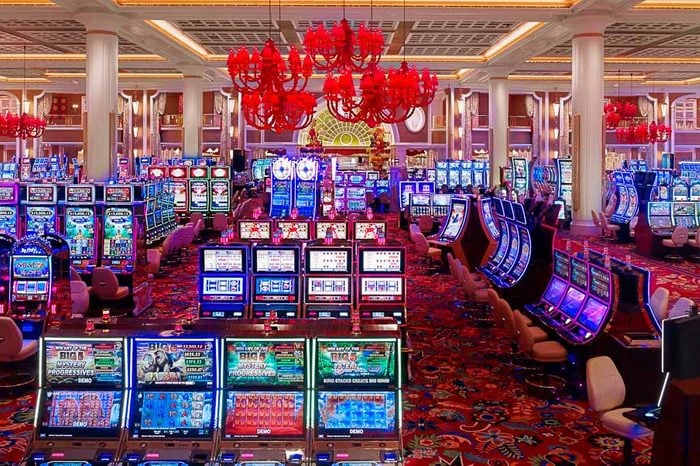
Encore Boston Harbor poured cash into creating smart rooms
The Encore Boston Harbor is the sister property of the Wynn Las Vegas. According to Travel Weekly, the $2.6 billion luxury resort has 210,000 square feet of gaming along with 3,000 slot machines. And the 671 guest rooms and suites are outfitted with plenty of smart tech features, including wireless tablets that facilitate voice-activated commands to control curtains, lighting, heating, and air-conditioning. There’s also the capability to control privacy settings.
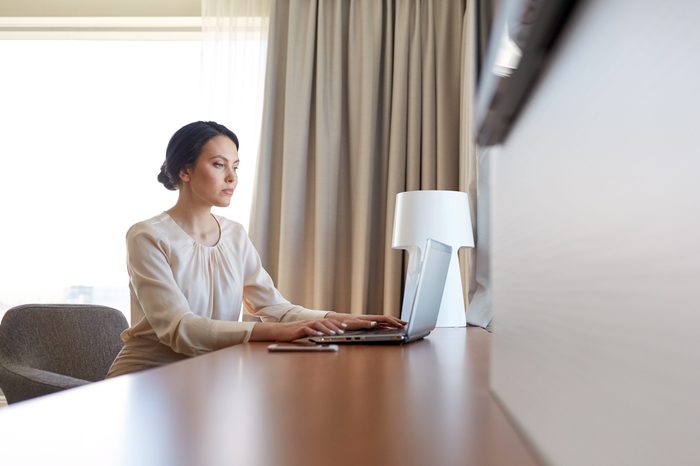
Know the risks before you plug in
And now for the potential downside: Connected devices are generally vulnerable to security breaches. “With the convenience of connected devices and smart home platforms like Amazon Alexa and Google Assistant comes the risk that someone is listening to guests’ recordings,” says Turner. “Amazon recently admitted that their employees listen to user recordings to improve Alexa’s artificial intelligence, so I’m a bit wary of having these voice assistants in hotel rooms.”
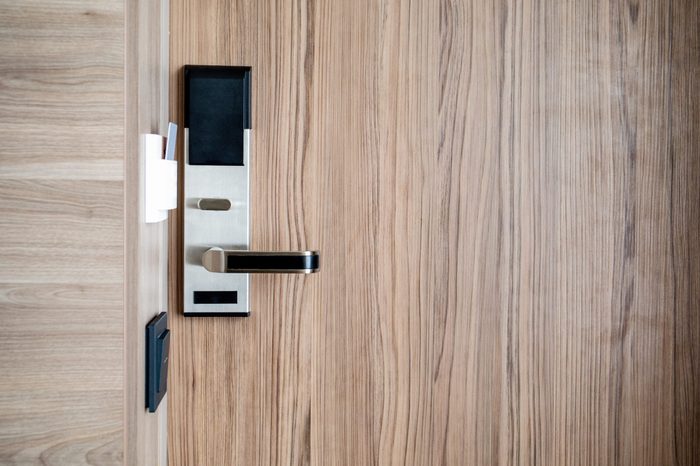
Beware of hackers
Hacking is a true risk that guests at smart hotels need to know about. For example, smart keys can be intercepted from up to 15 feet away. Hackers can also track your location, steal your digital signature, and rack up charges in your name. While hotels are working to improve privacy, it’s important to know that this technology has yet to be perfected. Of course, you can be hacked anywhere, and these are the signs that you’re at risk.
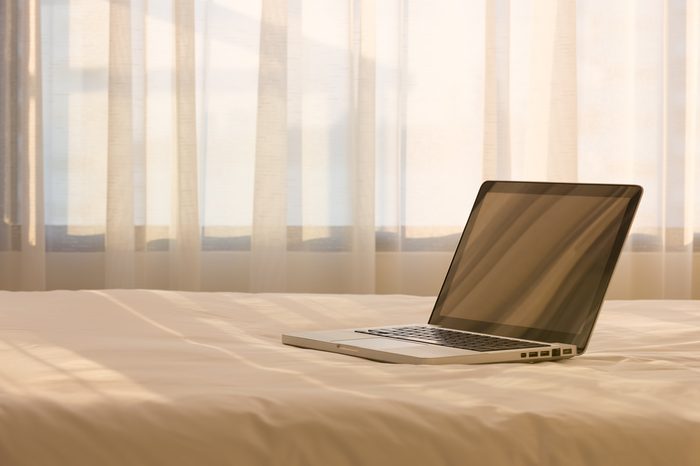
Think about the long-term consequences
Data brokering can be another concern with smart technology. “I’d be concerned about how the hotel is using and selling customer data to third parties, as the guest is providing a ton of valuable data in their stay at the hotel,” says Turner. Part of the problem is that Europe has stronger data privacy laws than the United States does, so “it’s super easy for companies to use and sell your data to third parties.” If your information ends up in the wrong hands, you may want to freeze your credit. Here are five other situations that will also make you consider a credit freeze.
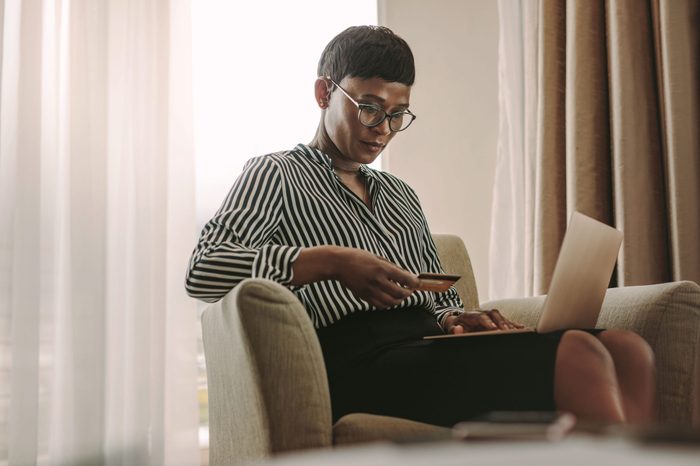
Know the laws in case your data is compromised
According to Turner, the law hasn’t really caught up with technology. “Currently, the only state in the United States that mandates manufacturers of connected devices include ‘reasonable security measures’ is California,” he says. “Outside of that, connected devices are known to be vulnerable to hacking, which may involve the taking of personal information like payment info, address, email, and more. I think the hotels need to be extremely wary of the security of these devices, as they can be vulnerable to security breaches.” While legislation is lagging in this area, these are the dumb laws that actually exist in each state.

Don’t forget to check your bill
If your hotel bill appears to be higher than you expected or there are changes you don’t remember signing for, it can be an indication that your security has been compromised. While you might be in a rush to check out, it’s a good idea to leave even just a few extra minutes to review your bill before leaving. While this may be inconvenient in the short term, it’s important to know what’s happened as early as possible so you can nip the problem in the bud.
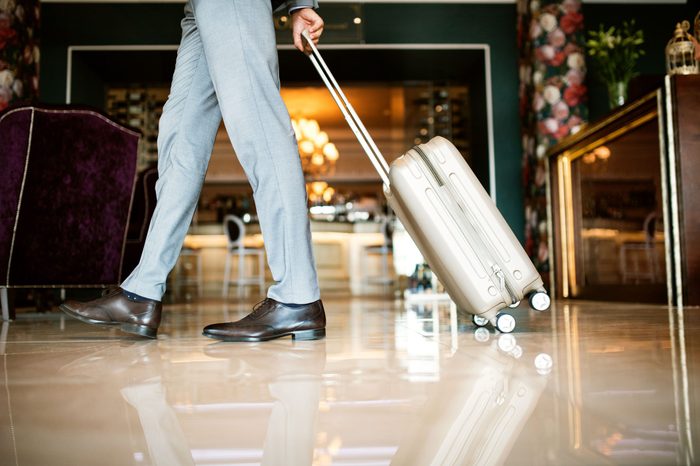
Stay smart even after you check out
While it’s always wise to keep tabs on your finances and bills, it is especially important if you often stay at smart hotels. Even if your bill is correct, criminals might wait to act until after you check out. How can you tell if your security has been compromised? “If there are charges on your bank account statements that you haven’t seen, if you stop receiving bills, if merchants begin to refuse your checks, if you get mysterious debt collector calls, or if you see unfamiliar account names or charges,” says Turner. Here are more ways hackers can get you when you travel.
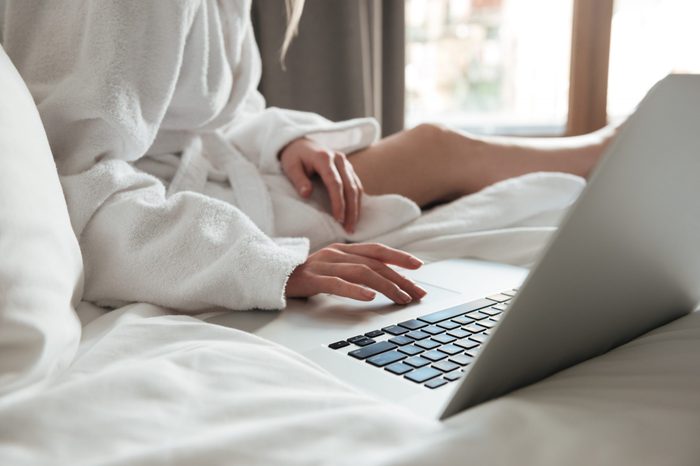
Consider using a VPN
Using public or hotel Wi-Fi can have disastrous consequences. But using a VPN is a great way around this issue. “If you’re using the hotel’s Wi-Fi, make sure you’re using a VPN, which encrypts your traffic in a tunnel,” says Turner. Even if you don’t have a VPN, here are some things you should never do while using public Wi-Fi.
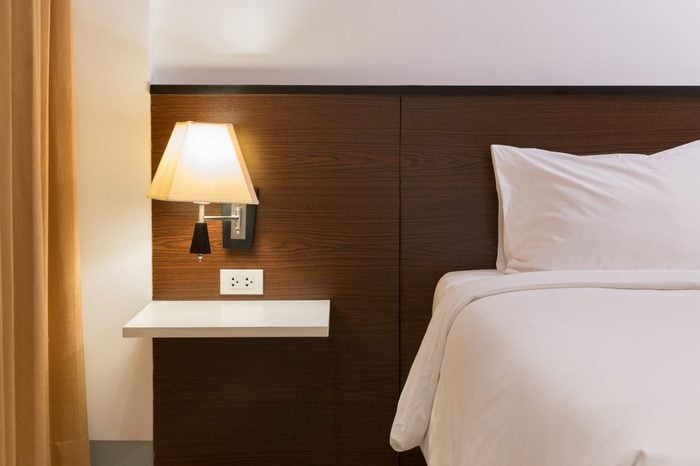
Or just opt out and unplug
If smart technology is going to make your vacation feel less than relaxing, consider limiting your use. “Check to see if the hotel has a feature where you can opt-out of using devices,” suggests Turner. “If that’s not possible, I would simply try to avoid using the devices and unplug any smart speaker or display, as they are always listening to their wake words.” Instead of using voice commands, he says it’s best to turn on electronics the old-fashioned way, as well as choose to deal with humans over robots if that’s an option. Periodically unplugging is also something you should consider at home, especially since these 8 things could be spying on you there.
